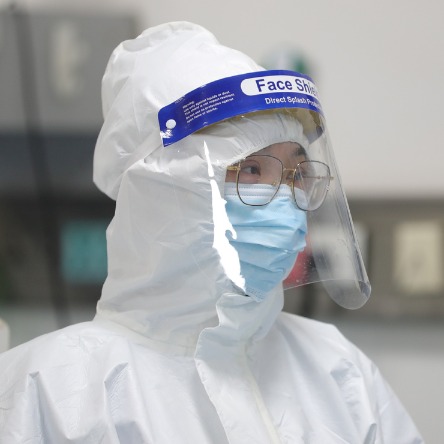



Zeng Guang, a member of the National Health Commission's senior-level expert panel, addressed some key concerns as China races to control the spread of the novel coronavirus that has claimed 41 lives and infected over 1,200 in Chinese mainland. He spoke with the China Inspection and Quarantine Times recently, a newspaper affiliated to the General Administration of Customs.
Q: Wuhan went into lockdown at 10 am on Thursday. Was it a belated decision?
A: To put a city under lockdown involves a wide range of considerations beyond the public health sector - social issues, economic concerns, mental conditions and the traditional customs of family reunion during the Spring Festival. It's not an easy decision to make. The timing of the current lockdown had taken a series of factors into account, and is understandable and acceptable.
It's not fair to say the lockdown is belated, because the decision will effectively step up the fight against the virus. It is also worth looking back on the process in the future to draw lessons and gain experience.
Wuhan is bound to face various issues following the lockdown. All walks of life and businesses in the city should join efforts to overcome difficulties in daily life and medical care services, while outside Wuhan, we should lend a helping hand and pay respect to the people of Wuhan.

Q: What is the greatest difficulty in controlling the disease?
A: Limited understanding of the epidemiology of the novel coronavirus, largely due to the constant mutation of the virus. For instance, at the beginning, we found no evidence of second generation human-to-human transmission among close contacts put under medical quarantine, suggesting the virus's weak capability in spreading among people. But later on, instances of human-to-human transmission occurred.
We have learned from previous experiences in combating contagious illnesses that infected patients with a normal body temperature will not transmit the disease. But now we are unsure if the rule applies to the novel coronavirus. It is now improper to conveniently model things after old measures.
We have accelerated research in this aspect, and if the novel coronavirus is transmissible during the incubation period, the risk of the disease spread will be heightened and our disease prevention and control work will be adjusted.

Q: Is a mammal the origin of the novel coronavirus?
A: I have insisted that wild animals rather than mammals could be the source of the new virus. During an inspection to Wuhan, Chinese experts found that the seafood market linked to many initial infections also illegally sold wild animals. Sightings of bamboo used to feed bamboo rats in the market prove the point. However, many vendors packed up and left before the investigation team was able to collect samples - a deep regret and lesson in our early work that hampers our research into the origin of the virus.
It would have been much better if we had inspected the market accompanied by the public security authorities and held these vendors on the scene.

Q: How do you predict the future progression of the outbreak?
A: After the lockdown of Wuhan, the outbreak nationwide is within expectations. Some cases outside Wuhan occur sporadically and most infections are linked to Wuhan.
It is now crucial to detect and quarantine all patients in Wuhan and put close contacts under medical observation, steps that will quickly help us contain the outbreak. But we are also cautious of hidden risks.

Q: How does the ongoing outbreak compared to severe acute respiratory syndrome (SARS)?
A: I see some difficulties that are greater than the fight against SARS. During the outbreak of SARS, symptoms of infected patients were more severe but its transmission pathway was clearer. Thus, it was easier for us to block transmissions.
Currently, the novel coronavirus leads to less serious conditions, but its transmission mode is more complicated. We should shift our focus to epidemiology, greenlight relevant research and mobilize efforts across the country. In the meantime, the overarching principle is to put disease control and prevention efforts over scientific research.
If you have any problems with this article, please contact us at app@chinadaily.com.cn and we'll immediately get back to you.